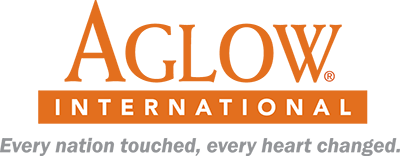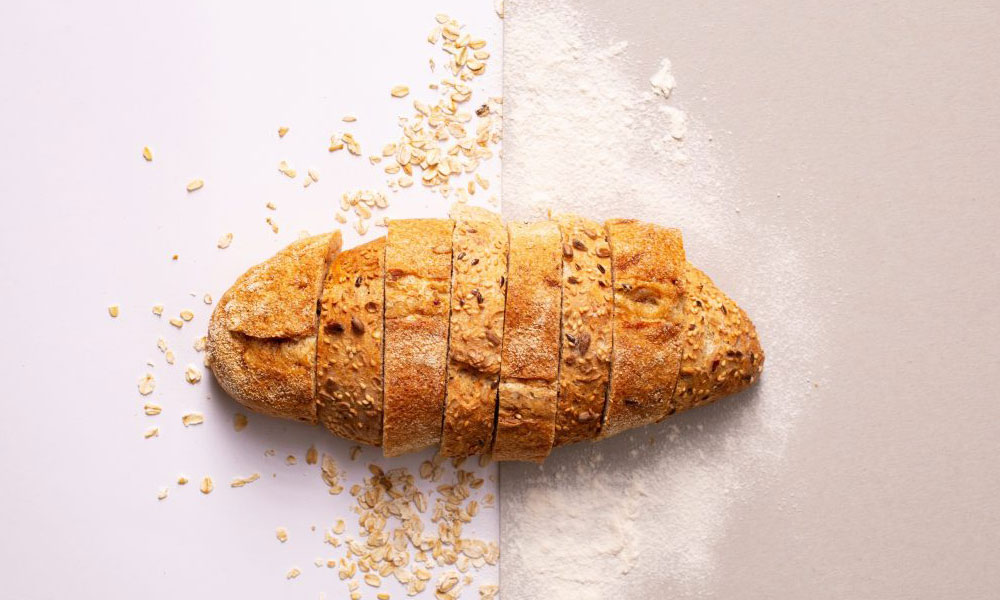(Jesus: I Am the Bread of Life - Part 1 | Part 2)
In the first part of this study, we looked at the significance of the name I AM, the name the Jews recognized as God's name and the name Jesus used to identify Himself as being God. In this part of the study we will look at a second name, the Bread of Life.
Bread is the principle food of the East. It is estimated that three-quarters of the people of the Orient depend entirely on bread or products made from wheat or barley flour as their food.
In this culture, the term, "eating bread", is equivalent to eating a meal. To the religious Jew of Jesus' time, there was an attitude of sacredness to bread. Bread is always broken, never sliced. To cut bread would be cutting life.
Although leavened bread is the usual form eaten, unleavened bread is also common place. Leaven is considered a symbol of sin, so when purity was demanded, the religious Jews always ate "unleavened" bread, going so far as to cleanse their houses of any leaven.
In the Orient, those who share a meal are bound together by a solemn covenant of peace and loyalty. Thus the expression "bread and salt" becomes sacred. This helps us understand why the religious leaders were so upset with Jesus for eating with "sinners."
The Scripture: Matthew 9:10-13
"While Jesus was having dinner at Matthew's house, many tax collectors and "sinners" came and ate with Him and His disciples. When the Pharisees saw this, they asked His disciples, 'Why does your teacher eat with tax collectors and "sinners?" On hearing this, Jesus said, 'It is not the healthy who need a doctor, but the sick. But go and learn what this means" 'I desire mercy, not sacrifice." For I have not come to call the righteous, but sinners.'"
1. Who was Jesus eating with?
2. What did the Pharisees ask His disciples?
3. What was Jesus' response?
4. Who did Jesus say He had come to call?
After He had fed the 5,000, Jesus tried to go off by Himself, but the crowd found Him. Teaching this crowd, Jesus proclaimed:
The Scripture: John 6: 35-37
"I am the bread of life. He who comes to Me will never go hungry, and he who believes in Me will never be thirsty. ...All that the Father gives Me will come to Me, and whoever comes to Me I will never drive away."
5. What did Jesus call Himself?
In Jesus' day, calling Himself the Bread of Life would have more of an impact than it would in more western cultures.
6. What would keep people from going hungry and thirsty?
7. What does Jesus promise those who come to Him?
Jesus continued His teaching on "the bread of life."
The Scripture: John 6: 26-27
"I tell you the truth, you are looking for Me not because you saw miraculous signs but because you ate the loaves and had your fill. Do not work for food that spoils, but for food that endures to eternal life, which the Son of Man will give you."
8. Why did Jesus say the crowd was looking for Him?
9. What did He tell them?
10. Where would they get that food?
The Scripture: John 6: 28-29
"Then they asked Him. 'What must we do to do the works God requires?' Jesus answered, 'The work of God is this: to believe in the one He has sent.'"
11. What did they ask next?
12. What was Jesus' answer?
The crowd persisted in arguing with Jesus.
The Scripture: John 6: 30-31
"So they asked Him. 'What miraculous sign then will You give that we may see it and believe You? What will You do? Our forefathers ate the manna in the desert; as it is written: "He gave them bread from heaven to eat.'"
13. What did they next ask Him?
14. What miracle did they allude to?
15. What was manna called?
In bringing up the subject of manna, the people were, of course, referring to the years God had provided it for the Children of Israel while they wandered in the wilderness.
When the Israelites had complained about lack of food, the Lord told Moses, He would rain down bread from heaven. This "bread" of heaven was like frost on the ground. Each day the people gathered enough food for a day.
When the people saw it, they called it, "manna," which meant "What is it?"
The Lord provided this bread from heaven for the forty years the Israelites wandered in the wilderness. When they produced their first crops in the Promised Land, the rain of manna stopped.
Jesus continued:
The Scripture: John 6: 57-58
"This (Jesus) is the bread that came down from heaven. Your forefathers ate manna and died, but he who feeds on this bread will live forever."
16. Where did Jesus say He came from?
17. What happened to those who ate the manna in the desert?
18. What would happen to everyone who ate the bread Jesus offered?
Jesus and His disciples celebrated the Passover together just before His death.
The Scripture: Matthew 26: 26-28
"While they were eating, Jesus took bread, gave thanks and broke it, and gave it to His disciples, saying, 'Take and eat; this is My body.' Then He took the cup, gave thanks and offered it to them, saying, 'Drink from it, all of you. This is My blood of the covenant, which is poured out for man for the forgiveness of sins."
19. What did Jesus do?
20. What did He do next?
21. What did He say?
Most of us will recognize these words. They are the same words we use today in our celebration of the Eucharist or Lord's Supper.
Jesus truly is our Bread of Life, the heavenly bread who came down to earth that we might feed on Him and have eternal life!
The Answers
- Tax collectors and "sinners"
- "Why does your teacher eat with tax collectors and "sinners?"
- "It is not the healthy who need a doctor, but the sick."
- Sinners, not the righteous
- The Bread of Life
- Coming to Jesus and believing in Him
- He would never drive them away
- Because He had fed them
- Not to work for food that spoils, but for food that endures to eternal life
- From Jesus
- What they had to do to do the works God required
- "The work of God is to believe in the One He has sent."
- To perform a miraculous sign so that they could believe in Him
- The manna in the desert that had been given to their forefathers
- Bread from heaven
- Heaven
- They died.
- They would live forever.
- He broke bread and said, "Take and eat; this is My body."
- He took the cup and offered it to them, telling them to drink.
- "This is My blood of the covenant, which is poured out for man for the forgiveness of sins."
All scripture quotations in this publication are from the Holy Bible, New International Version
(unless otherwise indicated)
Copyright © 1973, 1978, 1984, New International Bible Society
Copyright © 2006 by JoAnne Sekowsky





